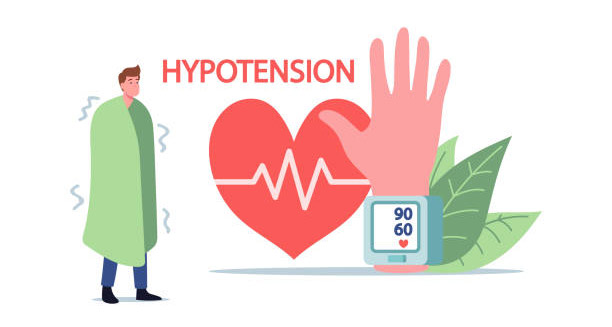The outlook for hypotension can vary widely depending on its underlying cause, severity, and how effectively it is managed. For many individuals, especially those who are young and healthy, hypotension may pose little to no health risk. However, for others—particularly older adults, individuals with chronic conditions, or those experiencing symptomatic drops in blood pressure—the long-term effects can significantly impact quality of life and overall health outcomes.
Outlook for Mild or Asymptomatic Hypotension
Many people with mild hypotension show no symptoms at all. In fact, low blood pressure may even help reduce the risk of heart problems like stroke or heart attack. For example, athletes or people who exercise regularly often have naturally low resting blood pressure without any issues. The outlook for these individuals is very good. They usually do not need medical treatment as long as they stay well hydrated, eat a balanced diet, and keep active.
Outlook for Orthostatic Hypotension
Orthostatic hypotension happens when blood pressure drops after standing up. This condition varies in how serious it is. For many younger adults, it can be temporary or happen only sometimes. Lifestyle changes such as drinking more fluids, eating more salt, and standing up slowly often fix the problem.
In older adults, orthostatic hypotension may last longer and cause problems like:
- Frequent falls
- Head injuries
- Less confidence in moving around
- Loss of independence
For these people, the outlook depends on how well they manage the risk of falls and whether the cause, like dehydration, nerve problems, or medication side effects, is treated. With good care, many older adults stay independent and avoid injuries.
Outlook for Hypotension Due to Medications
Many cases of hypotension come from medicines used to treat high blood pressure, depression, Parkinson’s disease, or heart failure. Often, lowering the dose or changing the medicine helps improve symptoms quickly.
If caught early, the outlook is positive. But if low blood pressure continues for a long time because of too much medication, it can reduce blood flow to organs and cause problems. This is especially true for people with heart or kidney issues. Regular checks and patient education help keep risks low.
Outlook for Hypotension from Chronic Illness
When hypotension happens because of a chronic illness like adrenal failure, heart failure, or nerve diseases, the outlook depends on how well the illness is treated. If doctors control the main illness, blood pressure may improve or stay steady.
If low blood pressure gets worse or does not improve despite treatment, it may mean:
- The disease is getting worse
- The treatment plan needs a change
- There is a higher risk of organ damage from poor blood flow
In these cases, the outlook is more cautious, and doctors must watch the patient closely to prevent problems.
Outlook Following a Hypotensive Crisis
In emergencies like septic shock, heart failure, or severe blood loss, the outcome depends on how fast and well doctors treat the patient. Hypotensive crises are very dangerous and can cause:
- Failure of several organs
- Long hospital stays
- Lasting problems like kidney damage or memory loss
- Higher risk of death, especially in older or very sick patients
Still, modern intensive care has improved survival. Patients who get quick treatment often recover well, but some may need long-term rehab or follow-up care.
Outlook in Specific Populations
Older Adults
Older people often have a more complex outlook. Even small drops in blood pressure can cause memory problems, falls, and loss of independence. Doctors must carefully balance treating high blood pressure while avoiding too low blood pressure. A personalized care plan helps prevent complications and improves long-term health.
Pregnant Women
Low blood pressure is common during pregnancy, especially in the first and second trimesters. Usually, it is harmless and goes away after birth. However, if symptoms like dizziness or fainting appear, closer monitoring is needed. With good care, both mother and baby usually do well.
Children and Adolescents
Children with low blood pressure due to dehydration, infection, or fainting spells usually recover fully with simple care. In rare cases, ongoing low blood pressure may point to a hidden illness. With the right diagnosis and treatment, their outlook is very good.
Lifestyle and Long-Term Management
How well a person adjusts their lifestyle and follows medical advice greatly affects the outlook for hypotension. Helpful steps include:
- Staying well hydrated all the time
- Avoiding sudden changes in position
- Wearing compression stockings if recommended
- Eating a balanced diet with enough iron, B vitamins, and salt
- Checking blood pressure often
- Keeping all medical appointments and tests
People who actively manage their condition often feel better, have fewer problems, and enjoy a higher quality of life.
Psychological and Emotional Recovery
People with frequent symptoms or who have fallen may also face mental health challenges. Adding psychological support improves recovery.
Therapies like cognitive behavioral therapy (CBT), counseling, and education help patients feel more in control, lower anxiety, and boost confidence in managing hypotension.
Advances in Treatment and Monitoring
New technology helps improve the outlook for hypotension. These include:
- Home blood pressure monitors for early warning
- Smartwatches that track heart rate and position changes
- Telemedicine for easy follow-up
- New medicines like droxidopa for nerve-related hypotension
These tools allow doctors and patients to respond quickly to changes and provide better personalized care.
Conclusion
The outlook for hypotension ranges from harmless to serious, depending on the cause and situation. For most people, especially those with mild symptoms or easy-to-fix causes, the prognosis is very good. When hypotension comes with other illnesses, aging, or repeated problems, active and team-based care helps improve outcomes.
With the right treatment, lifestyle habits, and regular checks, people with hypotension can live full, active lives and avoid the dangers of untreated low blood pressure.


